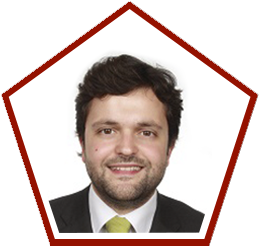Dr. José Luis Estrada

Dr. José Luis Estrada
Biodata
PhD in Language Teaching. Director of the double Degree in Modern Languages and Translation at Nebrija University. Assistant Professor in the BA in Modern Languages and the BA in Education, as well as the MA in Bilingual Education also at Nebrija University. His main research interests are second and foreign language(s) acquisition/learning and bilingual education and EMI practices. Current member of the following research groups: HUM-485 Enseñanza de lenguas extranjeras: Materiales para un nuevo diseño curricular (Cadiz University) and Lingüística aplicada a la enseñanza de lenguas extranjeras (LAELE) (Nebrija University).
How CLIL positively affects language teaching practices: A cognitive approach to error treatment.
The rationale of CLIL as a bilingual education approach that integrates subject-matter content and additional language learning has led to reconsider practices that have conventionally been more applicable to language teaching (cf. Ellis, 2013). Among those practices, it is worth stressing error treatment, as errors have become gradually considered an inherent (i.e. natural) part of language acquisition (cf. Pawlak, 2014). Therefore, an alternative for error treatment is suggested, pointing to a non-corrective sort of intervention upon errors (Truscott, 1999), something apparently more common among CLIL teachers concerning at least error correction level(s) of implicitness (Milla and García Mayo, 2014). The novelty lies then in the fact that this alternative error treatment could be extrapolated to language teaching in terms of oral interaction since correction (i.e. intervention) techniques do not always avoid errors from being committed/repeated. Instead, it may depend on learners´ level(s) of cognitive development according to their interlanguage stage.